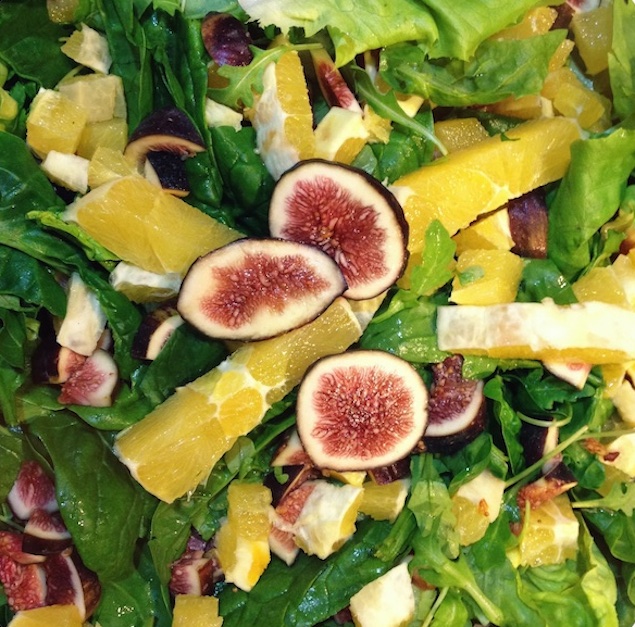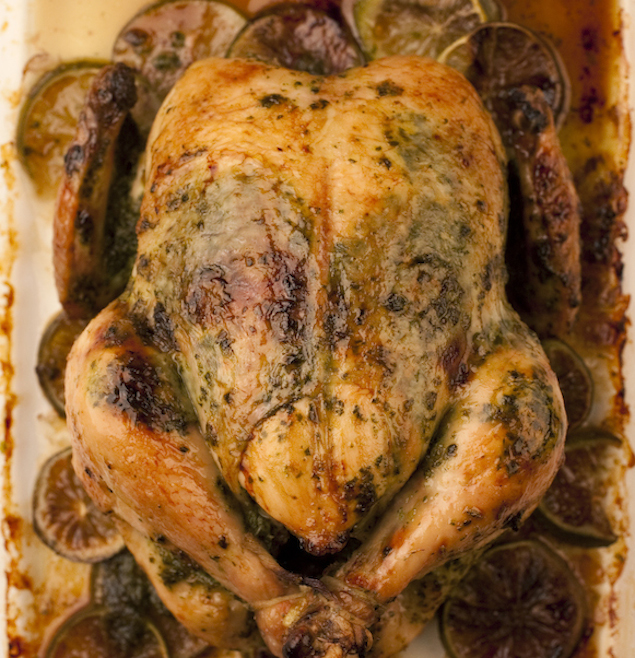Leisure • Food
Food as Therapy

At the moment, food is highly prestigious. A vast amount of attention is paid to celebrity chefs, dietary advice, new restaurants and cooking shows. We have, it seems, become collectively obsessed with what we eat.
But the question of what we need from food, other than just physical sustenance, is rarely taken up. The issue sounds a bit weird. And yet food is evidently not just ‘fuel’. It offers help with certain of our psychological needs. It has, if you like, therapeutic potential.
That’s because every kind of food not only has nutritional value (the sort you’ll see on the label), it also carries with it what one might term a psychological value. The value emerges from its character. Every food hints at a personality, an orientation, a way of apprehending the world, who it would be if it was magically turned into a person. You could ascribe to it a gender, an outlook, a spirit, even a political dimension.

Take the lemon. Nutritionally-speaking, it has 29 calories per 100g, 2.8g dietary fibre, 2.5g of sugar and so on. But psychologically-speaking, it has also ‘ingredients’. It is a fruit that ‘speaks’ (quietly but eloquently) of such things as: the south, the sun, the upstanding and the hopeful, the morning and the simple. It suggests calls to action, it wants us to brace ourselves to take on what matters and focus on what we know we have to do. It is against sentimentality: it is brutally honest, but kind. Or take the hazelnut. Again, full of nutritional value, but at the same time a receptacle of such things as: autumnal briskness, maturity, soberness, self-sufficiency and an almost childlike neatness (like a 10-year-old who keeps his drawers tidy…).
Foods contain edible philosophies of life, to which we may be seeking to get close by doing that most direct and understandable of things: eating. We are ingesting physically, but also trying to take into our souls the psychological nutrients we intuit. We want food to bolster certain sides of our natures and compensate for certain weaknesses of spirit. That’s what makes eating more than just fuelling up and restoring the body, it’s also about rebalancing our misshapen souls.
We want the foods we eat to help us become a little more as they are; we want to take on the avocado’s confident serenity, the figs’ ease with sensuality, the scallops dignified privacy, the asparagus’s resolute commitment to individuality. We invest in a steak out of a new commitment to vigour and courage, we turn to honey to lend weight to a desire to be more satisfied with simplicity. We might drink a whole glass of cold milk to put a wall between the present and a sexually dissolute past few days.

Let’s sum up what food does for us at a psychological level:
1. Food rebalances us
All of us are a little unbalanced in some way. We’re too intellectual or too emotional, too masculine or too feminine, too calm or too excitable. The food we love is frequently something that compensates us for a lack: it counterbalances us. When we’re moved by a food, it may be because it contains a concentrated dose of qualities we need more of in our lives. Perhaps it’s full of the serenity we admire, but don’t have enough of (bircher muesli). Perhaps it’s got the tenderness we long for, but that our jobs and relationships are currently lacking (peaches). The food we call ‘tasty’ gives vital clues as to what is missing in our psyches not just our stomachs. It’s in the power of food to help us be more rounded versions of ourselves.

2. Food reconnects us with important but currently elusive parts of ourselves
We are complex, layered beings. Not every part of us that matters is close to the surface at any time. We have too much history and so much going on, we lose sight of it. So one’s more playful side may get buried. Or the capacity to be awestruck and quietly, but deeply, moved by simple things may get neglected (but not destroyed) in the normal demands of daily life.

The intense evocative powers of certain foods makes them powerful conduits for helpful memories and associations. The right food can provide access to neglected psychological regions. It might be that one needs to eat fish and chips brought from a street stand to be linked, internally, to one’s eight-year-old self and to recover some of the freshness and thrill of existence one had at that point. Or we might need a particular kind of ham to take us back to an energy we knew in the South of Spain at the age of 28.
Thanks to food, one can reconnect with crucial – but easily forgotten – epochs of one’s own intimate history.
3. Food can help us to change our lives
Foods are bearers of philosophies (be kinder, remember sweetness, learn courage…).
When we are trying to change our lives (and we should quite often), food can play a role. Certainly we need to surround ourselves with other things, books which pull us in the right directions, friends, work, holiday destinations… But food has something to contribute to this effort at inner reformation as well.

It isn’t simply a case of ‘going on a diet’, as if the only thing one ever needed to change about one’s life was how heavy one was. We might ask food to help us on a mission to lead a less cluttered life, or to connect more with others, or to be more engaged with one’s own country… How we eat backs up ambitions for how we’d like to be.
4. Food can compensate for the decline of religion
One of the benign functions of religion has been to provide ritual; to make us set a date to meet up with important ideas and experiences and – fascinatingly – these religious rituals often centre around foods carefully chosen because they symbolise certain of the virtues the religions want to highlight.
For example, Zen Buddhists were encouraged to remember the value of friendship over a cup of elaborately brewed and very slowly consumed tea. In the early years of Christianity, the faithful would gather to remember the Saviour over that noble yet vulnerable creature, the lamb. The Jews use unleavened bread and bitter horseradish to embed the courage the believers displayed on the flight from Egypt.
The precise things religions want to tell us about how to lead our lives (with the help of food) may not necessarily be compelling at this moment. But the background idea; of using food to encourage you to think and feel in certain ways at certain points, remains highly useful.
We need to find our own equivalents of these religiously-choreographed foods, the tea, lamb or horseradish. That is, we should locate values we find supremely important, and then connect them up with particular foods with which they have most sympathy – and then, lastly, regularly ingest them in a ritual way.
For example, because in the long winters of Northern Europe, Korea and America it is so easy to lose sight of pagan virtues (the sun, the body, expansiveness, freedom, sensuality), an ideal modern secular ritual might call for regular celebrations centred around three foods in particular: the lemon, the papaya, and the olive – each of these guardians of values heavily under threat in downtown Frankfurt or Seoul at 4pm on a February afternoon.
5. Cooking as a route to individuation
In our own lives, it always starts with someone else giving us the food they think we’d like. They often get it wrong. For long periods, we’re eating stuff that doesn’t make us happy, that just keeps us going in the barest way.

Part of becoming an ‘individual’, as opposed to merely existing, is learning how to arrange bits of the outer world around us in sympathy with our own internal worlds. Learning how to cook has a big role to play in this, for it betokens a commitment to aligning what goes in our bodies with our true beliefs and hopes.
No longer are we merely fed by the world, and passively ingest whatever it serves up, we learn to define what we need and ensure we know ourselves how to secure it.
6. Food is an act of communication
Not all of us are very good with words. We want to get ourselves across, but stumble.
We’d like to express gratitude to someone, or show them more complex parts of ourselves. We’d like them to know about our imagination, our dexterity, or our commitment to dignified simplicity.
But what it can be hard to express with words, one can get across via food at the table. Our penne with fresh basil may be an essay on the love we feel for someone, the grilled mushrooms may be a way to say, in the deepest sense, welcome home, the roast chicken may be a plea for greater harmony in the family, the mango sorbet served with squares of black chocolate externalises a vision of utopia. Like music, food is extraordinarily direct. It can say the important things without having to go through the bore of language.
** **
A few months ago, we built a microsite to act as a guide to how art might fit into one’s life – and how it could bolster one’s best sides: www.artastherapy.com. We’ve now built a companion site that aims to do much the same with food, guiding you to what foods you might cook and eat to back up certain psychological ambitions. Please visit: www.foodastherapy.org.




























